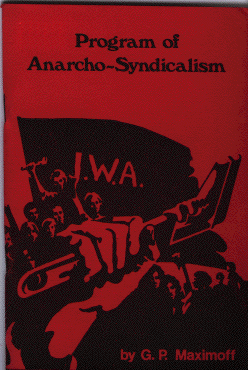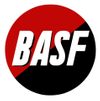Organization of Defense

- Military Sphere.
The true Revolution is unthinkable without the participation of the broad masses of the people. Wherever these are absent, there is no Revolution; it may be a mutiny, a coup d'etat, but nothing more. Mutinies and coups are created artificially. Revolutions ripen by natural process, and revolutionary activities can only aid this process -- they are never a cause of the upheaval. For that reason a Revolution which brings the huge masses of the people into action is always successful. It will always remain a historic landmark for its own people and others, because, even in death, it gives a direction to popular aspirations for centuries ahead. Such revolutions, following one another, were the English, the French and the Russian Revolutions.
Revolution is the destruction of the old order in all spheres of life. In the process of destruction, the Revolution produces disorder. This disorder, as it annihilates the forces of the old society, is in no danger of being suppressed during the first period of the upheaval -- until the terrified elements of the old regime rally from the shock of the elemental onslaught and reassemble their forces. During this short interval the Revolution must establish its own order and must introduce a series of economic measures which will prevent or, at least, hamper the organization of resistance on the part of the adherents of the old regime, and which will prove in themselves a factor of defense.
The Revolution must also lay immediately the foundations for its organized military defense. The first act in this direction will be the capture of weapons and ammunition dumps, the dissolution of the old army, the arming of all mutineers and the organization among them of a revolutionary guard on the basis of plants, villages and institutions. These measures of the first period of the Revolution will not however be sufficient for its defense during a civil war, which will undoubtedly be organized and supported by the International imperialism encircling the country of the social revolution. Hence the second step will be the organization of armed forces according to all the rules of military science, but in complete harmony with the fundamental aims of the Revolution itself.
Partisan detachments will not be a siilliripiiilv reliable Form for the full defense of the Revolution. They will certainly appear in the Revolution itself, and will play a useful part in the initial stages of the struggle, but they will be helpless once it takes on the aspects of real warfare. Under such conditions hostilities can only be conducted by properly organized armed forces, capable of utilizing military' science and all methods of modern war technique. But an army in the form which exists in bourgeois countries, or on the lines of the Red Army in Soviet Russia, would not conform to the fundamental principles on which the new society is to be built. Therefore neither the army nor partisan detachments can be considered the desirable form of organizing the military forces in the Revolution. The first would be a threat to freedom, the second an insufficient means of defense.
Instead, the Anarchists propose the general arming of the working people on the basis of a militia. This militia would be organized on the following principles:
- Arming of all working people capable of bearing arms from the ages of eighteen to forty-five.
- Recruitment of all women capable of work from the ages of eighteen to thirty-five, for medical services connected with the workingmen's militia.
- Abolition of military service life in barracks.
- Instead of barracks, which are to be used only in time of war and of musters for military training, all military and medical training will be given at the place of work; in factories, plants, workshops, villages and agricultural communities, without separating the trainee from his socially useful work.
- Institution of an annual thirty-day muster for manoeuvres, for which mobilization, like that for war, will be conducted according to age groups.
- The organizational apparatus of the workingmen's militia will consist of mobilization committees, including military specialists, attached to the federative associations of productive communes. The specialists will, at the same time, continue to fulfil their economic functions in the commune on an equal basis with all its other members.
- Supply Departments will be established in the federative distributive associations and in the co-operatives, and these will also include military specialists.
- The Military Operations staff of the workingmen's militia will be constituted on an elective basis from among those involved in military instruction and from the best experts on military affairs.
- In their conduct of military and military-technical education, the Military staff will appoint to each production unit the number of instructer-commanders needed. The task of these instructors will be to lead the military units in factories, plants and villages, and at the same time to work, like everybody else, in productive jobs. The persons appointed by the Military Operations staff may be removed from their posts not only by the Staff, but also by a general meeting of the members of the plant or the village commune.
- Since the country of the social revolution will be under constant threat of military attack on the part of its bourgeois neighbors, the Revolution will need to provide for the training of specialists in all branches of military affairs. Hence the military training schools will have to remain in existence during the Transition Period, though they will be reformed in the proper manner, while the services of the officers of the old army and of the technical intelligentsia will have to be utilized by the Revolution.
- Owing to the organizational structure of the working-man's militia described above, all its institutions and all individuals serving it must be industrialized in peacetime, i.e. they must be organized in productive labor in accordance with their training and with the organizational needs of the workingman's militia.
- The war production-plants will be communized and incorporated into the general system of communistic economy. They will join the corresponding productive associations and will receive production orders from the Military Production Section of the General Confederation of Labor.
The defense of the -Revolution, organized in this manner, will provide the opportunity for the utilization of all the advantages of militaristic armies, while at the same time neither individuals nor organizations which might act against liberty and the revolution will find it possible to seize military power. The industrialization of the militia's machinery and personnel will prevent bureaucratization and the development of the commanding staff into a separate military caste.
B. Public Security and Internal Tranquility.
The new society, even in its transitory form, will be a truly free association of people based on the universal recognition of the natural rights of man. Liberty and equality, with a resulting solidarity and respect for the inalienable rights of others - -- that is the real meaning of natural justice.
Liberty is indivisible from equality, just as equality is indivisible from liberty. Liberty without equality is only formal liberty, and it is followed by the arbitrary rule of a minority over the majority. This kind of liberty is characteristic of State-capitalist society. And equality without liberty, which is the characteristic of State-Communist society, is inevitably followed by the complete enslavement of the individual. The Anarchists will therefore build society on the foundations of natural right, where liberty and equality will be indivisible; they recognize and desist from opposing those norms of behavior which result from this right.
Natural right is inimical to all legislation, which must necessarily limit its functioning. Hence neither the communal structure, which is the transitory step towards mature communism and anarchy, nor, obviously, the structure of full communism and anarchy, will have need of legislation. With the elimination of written juridical laws, legislation will come to an end. The only written law will be the Constitution of the Confederation and its component sections, the general agreement based on the natural right applicable to all members of the Confederation who wish to remain within it.
Since, in modern society, almost all crimes are committed in the sphere of private property, as a result of the defiance of natural right by those in power, the removal of the cause will also lead to a removal of its consequences. Hence, in the future society and in its Transition Period, the only crimes will be those committed as a result of the sick condition of an individual, as well as, in the first period while the psychology characteristic of the state capitalist society still lingers, crimes connected with a refusal to carry out social obligations.
Another type of crime -- the crime against liberty and equality -- will take on mass character only at one point in the Transition period; when an active struggle is waged for the conquest of peaceful conditions for the healthy development of the first stages of society in the direction of fully consummated communism and anarchy, i.e. in the period of the civil war. The individual who would rise against liberty and equality, would place himself by that very act outside both, and would be subject either to ostracism, exile or temporary isolation, with the utilization of his labor capacity for productive work in conditions of human dignity. All prisoners of the civil war will belong to this temporary category of criminals against liberty and equality. There will be no need to establish special institutions for this category of criminals. They will be dealt with by the workingmen's militia through its machinery, and by the councils of the commune.
For the rest, the society of the Transition Period will conduct its campaign against crime not by revenge in the form ol legal punishment, which is the guiding principle of justice in the bourgeois and state socialist structures, but by treatment, education and temporary isolation of the abnormal elements, insofar as that will prove necessary, and, most of all, by means of moral in-rluemce, a method which is already being applied successfully by various societies and organizations. For that reason the society of the Transition Period will have no need of legal institutions on the lines of those in the modern State-Capitalist society. It will deal with the question by providing arbitration at the places of production; in the case of small crimes which have no social significance and have been committed outside production centers, society will be able to deal with these also through arbitration.
As to crimes of social import like, for instance, various kinds of violations of liberty and equality, murder, etc., such cases will be dealt with by public communal courts composed of representatives of producers' and consumers' communes, co-operatives and house committees in the commune in question, and will include appropriate scientific experts and physicians. The composition of these courts, organized whenever required, will be flexible, since the judges will be elected for specific sessions only. Since prisons as such will be abolished, the criminal will be subject, depending on his psychological condition, either to medical treatment or to temporary isolation from society in special correctional productive communes within whose limits he will be entirely free.
A society which has abolished private property and the State, with all its privileges, will have no need of the services of the police, and will take the business of internal security and peace into its own hands. As long as the need exists, the entire population -- as represented in house, street and district committees, will fulfill this social function in rotation. As a result, the reorganized protection of internal security and the assurance of tranquility in the Transition Period will not resemble, either in shape or in substance, the parallel institutions of bourgeois society. Their form will result logically from the character of the Transition Period itself and will be based on the self-reliant action of the population. This self-protection will certainly prove superfluous in the mature society of free communism.

